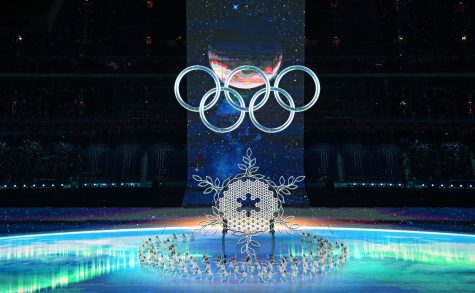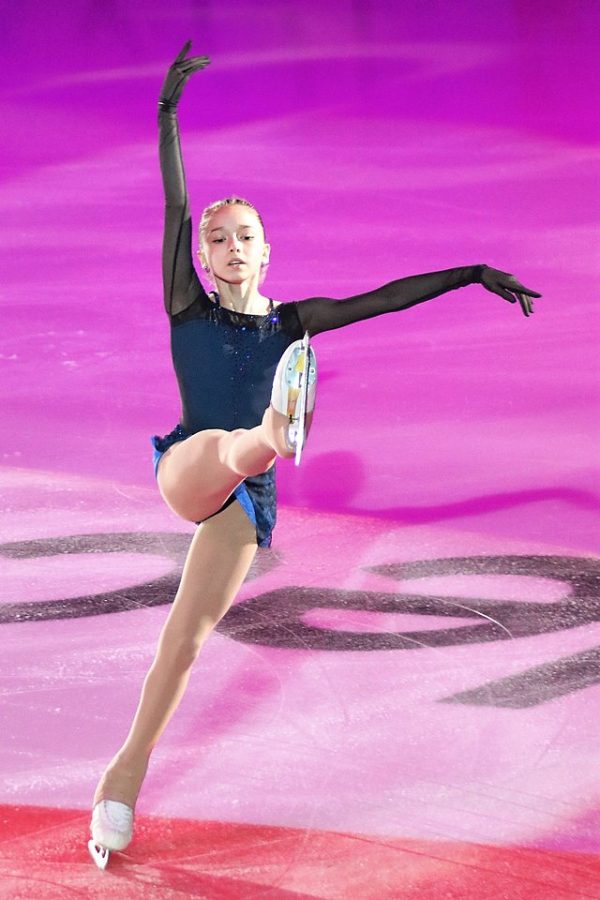Kamila Valieva: Why she should not have been allowed to skate
Recently, 15-year-old Russian Olympic figure skater Kamila Valieva faced controversy for being allowed to compete in the women’s figure skating competition at the 2022 Winter Olympics in Beijing despite testing positive for a banned performance-enhancing substance.
Valieva tested positive for trimetazidine, which according to the South China Morning Post is a drug meant for preventing angina attacks, a type of chest pain caused by reduced blood flow to the heart.
Trimetazidine is banned by the World Anti-Doping Agency (WADA) because of past evidence that it enhances performance, specifically with endurance and metabolism. This drug also helps the body use oxygen more efficiently.
Valieva also tested positive for hypoxen and L-carnitine, which both assist in the body’s oxygen use, though WADA does not ban these drugs.
Valieva claimed that the positive test was due to contamination with a medication her grandfather takes, and it could have gotten into her system from drinking from the same glass as him or through other means.
The Court of Arbitration for Sport (CAS) ruled in favor of Valieva due to her status as a minor, making her a “protected person” under Olympic terms.
This means that Valieva faces different rules from adult competitors, and the CAS took this into account when they said that not allowing her to compete would cause “irreparable harm.”
Valieva should not have been allowed to compete, despite her status as a minor. However, the skater should not have to face pressure and controversy of this magnitude.
While the court’s stance on Valieva facing different circumstances due to being a minor is understandable, this should not have changed their ruling in consideration of the other athletes competing.
Despite Valieva’s age, the Olympics should be a clean competition among all participants. Regardless of if the medication was intended to be in her system or not, she should not be allowed to compete if the drug enhances performance.
The situation has been compared to Sha’Carri Richardson’s, a Black track and field sprinter who was banned from participating in the 2020 Tokyo Olympics due to testing positive for marijuana, which is a banned substance, according to the WADA.
Richardson’s case was also shrouded in controversy due to the debate of whether or not marijuana enhances performance. However, Richardson’s case differs from Valieva’s in the aspect that she was banned by the U.S. Anti-Doping Agency and not the CAS or International Olympic Committee.
Despite these differences, the rules for competing in the Olympics have proven to be inconsistent since Valieva was still allowed to compete with a positive test result. And this was not beneficial for the Russian skater.
The CAS allowed Valieva to participate because being able to compete would prevent her from serious harm, but this decision had the opposite result, causing more harm than good for the 15-year-old.
When Valieva went on to the competition, she fell multiple times and left the ice as the crowd watched her mental state crumble.

Valieva’s performance disturbed the president of the IOC, Thomas Bach.
“To see her struggling on the ice, to see her, how she tries to compose herself again, how then she tries to finish her program and you could see in every movement, in the body language, you could feel that this is immense, immense mental stress and maybe she would have preferred to just leave the ice and try to leave this story behind her,” Bach said.
Bach also commented on how Valieva’s coach responded to her.
“Rather than giving her comfort, rather than to try to help her you could feel this chilling atmosphere, this distance and if you were interpreting the body language of them, it got even worse because this was even some kind of dismissive gestures,” Bach said.
Valieva should not have been allowed to participate in this event – period. Not only for the sake of the other competitors, but also for her mental wellbeing.
Though her age was considered, the very decision made to protect her is what put her through mental anguish.
For the sake of fair competition and the mental health of minors competing in the Olympics, decision-making will have to be more thought out by the IOC and the Olympic anti-doping agencies. The Olympics is supposed to showcase the world’s very best athletes, but if they are not all held to the same standard, that tarnishes the IOC as a whole and takes away from the honor and pride that comes with being an Olympian.
Your donation will support The Lion's Roar student journalists at Southeastern Louisiana University.
In addition, your contribution will allow us to cover our annual website hosting costs.
No gift is too small.

Cade Roland is a Finance major from Lafayette, LA. He joined the Lion's Roar in February of 2022. He graduated from Early College Academy in 2021. Outside...







Alan • Mar 5, 2022 at 6:13 pm
The WADA needs to rethink their stance on drugs such as this.
Maybe she needs to take this drug for health reasons. By denying her the ability to take rhe drug, she could be putting her health at risk.
Otherwise, the Olympic rules are saying, “you can’t compete if you have a medical issue. You need to be in the best of health”.
I am speaking in generalities, not necessarily of this specific case.